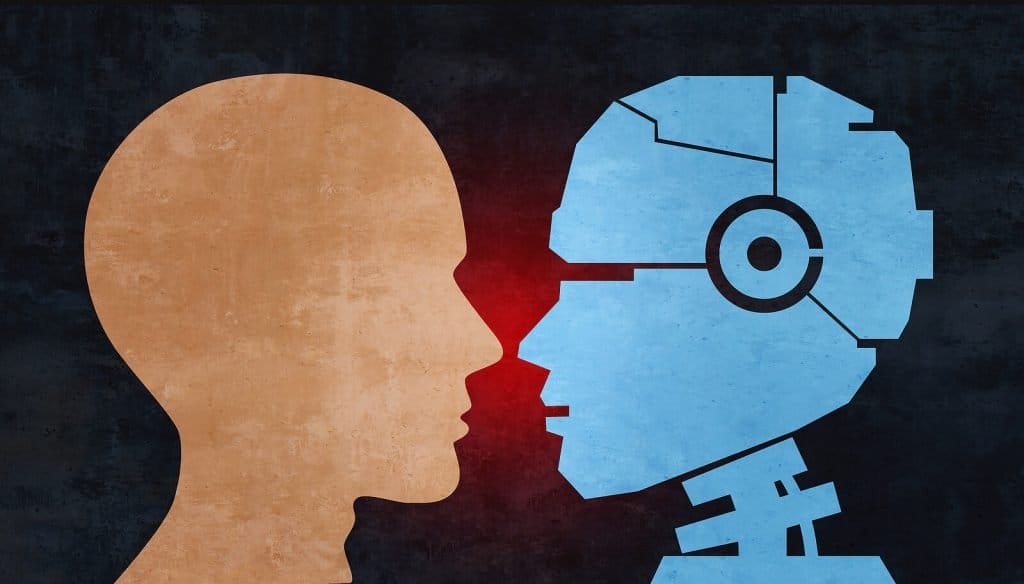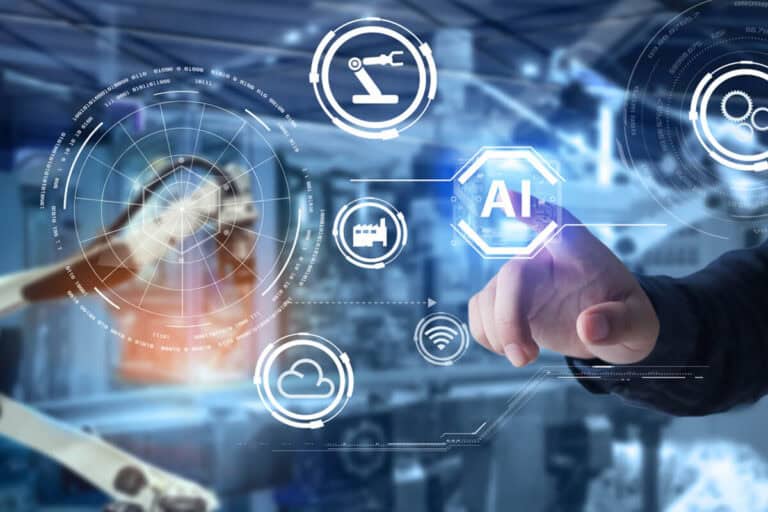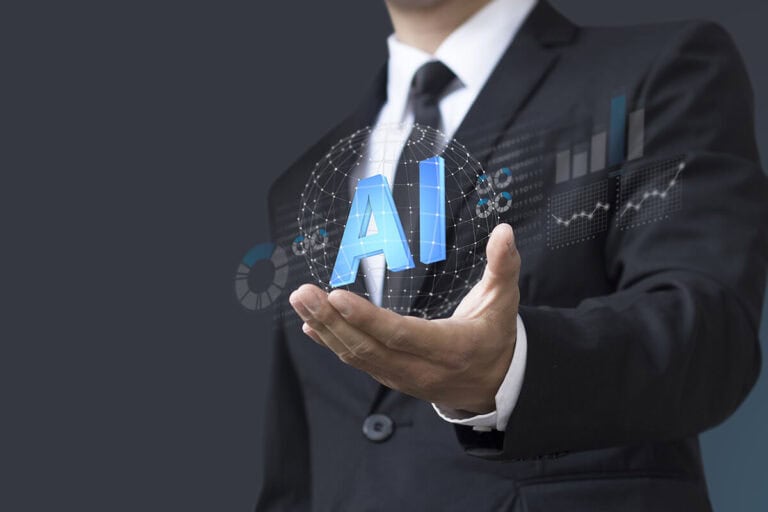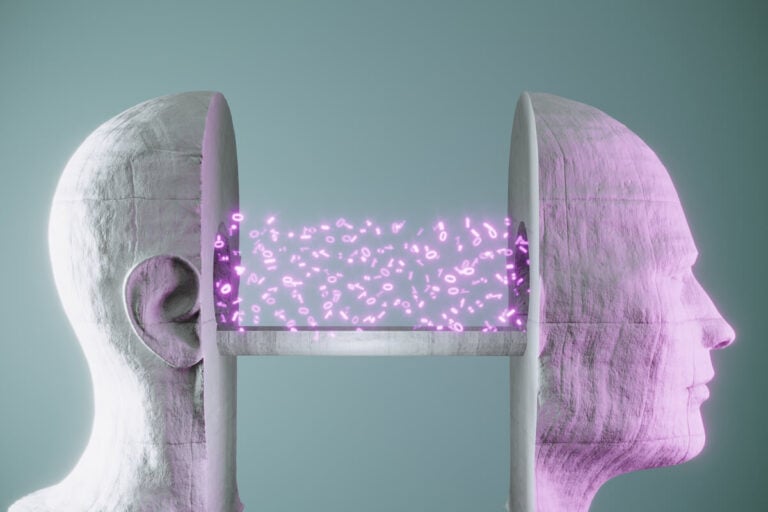Since a few years ago, advances in predictive analytics and generative AI, as well as AI voice assistants like Siri and Alexa, have revolutionized the world. Artificial intelligence is altering the way we work, play, and live. In this blog, we’ll look at how developments in AI technology affect the job market and the nature of the future of employment.
Table of Contents
ToggleAI significantly impacts the job market, as highlighted in the World Economic Forum’s “The Future of Jobs Report 2023.” According to the report, by 2025, AI is expected to replace 85 million jobs globally. However, the report also suggests that AI will create around 97 million new roles, leading to a net positive impact. It is important to note that the types of jobs AI will create will differ from those that will be lost.
Currently, AI is being utilized to automate repetitive and mundane tasks such as data entry and processing. Consequently, jobs requiring these skills are likely to be automated in the future. However, positions that demand human skills such as problem-solving, creativity, and empathy are less susceptible to immediate replacement by machines. These qualities are integral to roles that involve complex decision-making and require a human touch.
While AI continues to evolve, jobs involving problem-solving, creativity, and empathy will also be impacted. Nonetheless, the encouraging news is that AI will enhance these jobs and open up new opportunities like never before. The integration of AI technologies will augment human capabilities, allowing individuals to reach new levels of efficiency and effectiveness in their respective roles. This collaboration between humans and AI has the potential to revolutionize industries, create innovative solutions, and drive economic growth.
Challenges for AI in the Job Market:
- Job Displacement: One of the most significant concerns associated with AI is the potential displacement of human workers. Jobs that involve repetitive and mundane tasks, such as data entry or assembly line work, are increasingly being automated. This displacement can lead to economic and social challenges, including unemployment and income inequality.
- Skill Mismatch: The jobs created by AI may require a different skill set than those being replaced. This skill mismatch can create challenges for individuals who may find their current skills outdated or irrelevant. Reskilling and upskilling initiatives become essential to bridge the gap and ensure a smooth transition into new job roles.
- Ethical Considerations: As AI takes on more decision-making responsibilities, ethical considerations become critical. Potential biases in algorithms or a lack of transparency can lead to discriminatory outcomes. Ensuring ethical AI practices and guidelines becomes crucial to maintaining fairness and accountability in the job market.
- Job Transformation and Reskilling: While certain job functions may be automated, AI also has the potential to transform existing roles rather than eliminate them entirely. Jobs requiring repetitive tasks can be augmented by AI technologies, allowing workers to focus on higher-value activities. However, this transformation requires workers to reskill and adapt to new job requirements. The challenge lies in providing adequate support and resources for individuals to acquire the necessary skills to thrive in these transformed roles.
Opportunities for AI in the Job Market:
- Job Creation: While AI may replace certain job functions, it also presents significant opportunities for job creation. The development, implementation, and maintenance of AI technologies require skilled professionals. New roles such as AI specialists, data scientists, and machine learning engineers are emerging, providing employment opportunities for individuals with the right skill set.
- Enhanced Productivity and Efficiency: AI-powered automation can eliminate repetitive and mundane tasks, freeing up human workers to focus on more complex and creative aspects of their jobs. By taking over routine activities, AI enables individuals to enhance their productivity, make better decisions, and drive innovation.
- Collaboration between Humans and AI: Rather than replacing humans, AI has the potential to augment human capabilities. By leveraging AI technologies, individuals can work alongside intelligent systems, combining their unique problem-solving, creativity, and empathy skills with the efficiency and processing power of AI. This collaboration can lead to more effective and impactful outcomes.
- New Industries and Opportunities: AI is revolutionizing various industries, creating new business models and opportunities. From autonomous vehicles to personalized healthcare, AI is driving innovation across sectors. These emerging industries require a workforce with a blend of technical expertise and human skills, providing individuals with avenues for career growth and entrepreneurship.
Final Verdicts:
There is no denying that AI will have an influence on the employment market, and both possibilities and difficulties will arise. While the loss of jobs is still a problem, there are opportunities for development and innovation due to the introduction of new roles, increased productivity, and human-AI collaboration. To successfully traverse this shifting terrain, individuals and organizations need to adapt, upskill, and use ethical AI practices. We can build a future where humans and AI collaborate to advance technology and improve work and life quality by embracing AI technologies and developing distinctly human talents.
FAQ
A: AI is significantly transforming the job market by automating tasks previously performed by humans. While it creates new job opportunities in AI development, data analysis, and AI integration, it also leads to job displacement in industries where AI systems can efficiently handle repetitive tasks. The widespread adoption of AI requires the workforce to adapt and acquire new skills to stay relevant in the changing job landscape.
A: Industries heavily reliant on routine tasks, such as manufacturing, customer service, and administrative roles, are experiencing the most impact due to AI-driven automation. Additionally, the transportation, finance, and healthcare sectors are seeing substantial changes as AI systems are implemented to optimize processes, streamline operations, and enhance decision-making.
A: Job roles that involve complex decision-making, creativity, emotional intelligence, and interpersonal skills are generally more resilient to AI disruption. Professions such as creative arts, strategic planning, counselling, and innovation require uniquely human qualities that AI struggles to replicate fully.
A: To prepare for the AI-driven job market, individuals should focus on acquiring skills that complement AI technology rather than competing with it. Data analysis, programming, critical thinking, problem-solving, and adaptability skills will be in high demand. Lifelong learning and upskilling initiatives will become essential to stay agile and remain employable in the evolving job landscape.
A: The long-term impact of AI on job creation and displacement is still debated among experts. While AI may eliminate certain job roles, it creates new opportunities in emerging AI-related fields. The net effect on job creation depends on various factors, including the pace of AI adoption, the ability of the workforce to adapt, and how well societies manage the transition. Policymakers and businesses play a crucial role in ensuring that AI’s benefits are maximized while mitigating its potential negative effects on employment.





